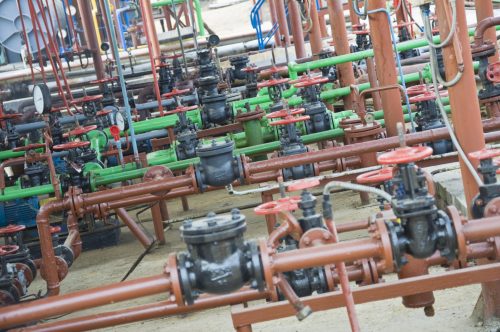In the field of mechanical engineering, staying up-to-date with the latest technological advancements and industry standards is crucial for career advancement. One way to achieve this is by taking professional development hours (PDH) courses. In this blog post, we will explore the benefits of PDH courses for mechanical engineers and why they are essential for staying competitive in the industry.
What are PDH courses, and why are they important for mechanical engineers?
PDH courses, or Professional Development Hours courses, are an essential part of continuing education for mechanical engineers. These courses are designed to keep engineers up-to-date with the latest industry advancements, standards, and regulations. The importance of PDH courses lies in their ability to enhance the technical knowledge and skills of mechanical engineers, allowing them to stay competitive in the industry.
One of the key benefits of PDH courses is that they help mechanical engineers stay current with industry advancements. The field of mechanical engineering is constantly evolving, with new technologies, techniques, and standards emerging regularly. PDH courses provide engineers with the knowledge and skills needed to stay ahead of these advancements and remain relevant in the industry.
Another key benefit of PDH courses is that they enhance technical skills. Mechanical engineering is a highly technical field, requiring expertise in various areas such as thermodynamics, fluid mechanics, and materials science. PDH courses provide engineers with the opportunity to deepen their knowledge and skills in these areas, allowing them to solve complex engineering problems and take on more challenging projects.
In addition to staying current with industry advancements and enhancing technical skills, PDH courses can also help mechanical engineers advance their careers. By investing time and effort in professional development, engineers can increase their earning potential, gain professional recognition, and improve their job prospects.
In conclusion, PDH courses are essential for mechanical engineers who want to stay current with industry advancements and enhance their technical skills. These courses provide engineers with the knowledge and skills needed to stay competitive in the industry, advance their careers, and solve complex engineering problems.
Types of PDH courses available for mechanical engineers
There are several types of PDH courses available, including online courses, conferences, seminars, and workshops.
Online courses are a popular option as they provide engineers with the flexibility to learn at their own pace and from the comfort of their own home. Conferences and seminars are another great option as they provide engineers with the opportunity to network with industry professionals and learn from expert speakers. Workshops are also an effective way to enhance technical skills as they provide hands-on experience and practical training.
It is important for mechanical engineers to choose the right PDH courses based on their individual career goals and interests. They should evaluate the course content, instructor experience, and accreditation to ensure that the course aligns with their career goals and interests. Choosing the right PDH courses can help engineers stay competitive in the industry, advance their careers, and achieve their professional goals.
How mechanical engineering PDH courses can help mechanical engineers advance their careers
By taking PDH courses, mechanical engineers can stay up-to-date with the latest industry advancements and enhance their technical skills. This can lead to increased job opportunities and career advancement. In addition, employers often recognize the value of employees who invest in professional development. They may be more likely to promote or reward engineers who have completed PDH courses.
Furthermore, completing mechanical engineering PDH courses can increase earning potential. Engineers who have invested in their professional development and have enhanced technical skills are often more competitive in the job market. They lead to higher salaries and better job opportunities.
Finally, completing PDH courses can lead to gaining professional recognition. Engineers who have completed PDH courses can gain certifications or other professional designations. That showcase their expertise and commitment to the field. This can lead to increased credibility and professional recognition, which can help advance their careers.
In conclusion, PDH courses are an essential component of career advancement for mechanical engineers. By enhancing their technical knowledge and skills, increasing their earning potential, and gaining professional recognition, engineers can stay competitive in the industry and achieve their professional goals.
Tips for choosing the right PDH courses for your career development
Choosing the right mechanical engineering PDH courses is essential for mechanical engineers who want to advance their careers. Here are some tips and guidance for selecting the right PDH courses based on individual career goals and interests:
- Evaluate the course content
Ensure that the course content aligns with your career goals and interests. Look for courses that cover the latest industry advancements and emerging technologies. - Instructor experience
Check the instructor’s credentials and experience in the industry. Choose courses that are taught by experienced professionals with a proven track record of success. - Accreditation
Look for courses that are accredited by reputable organizations. Accreditation ensures that the course meets industry standards and is recognized by employers and other professionals. - Cost and time commitment
Consider the cost and time commitment required for the course. Look for courses that fit your budget and schedule. - Read reviews and ratings
Read reviews and ratings from other professionals who have taken the course. This can provide valuable insights into the course content and instructor effectiveness.
By following these tips, mechanical engineers can choose the right PDH courses. That align with their career goals and interests, enhance their technical skills, and advance their careers.
Conclusion
In conclusion, taking PDH courses is essential for mechanical engineers who want to stay current with the latest industry advancements. Mechanical engineers can enhance their technical skills, and advance their careers. By investing time and effort in professional development, mechanical engineers can stay competitive and achieve their career goals.



One thought on “Why taking Professional Development Hours (PDH) courses are essential for advancing your mechanical engineering career”
Comments are closed.